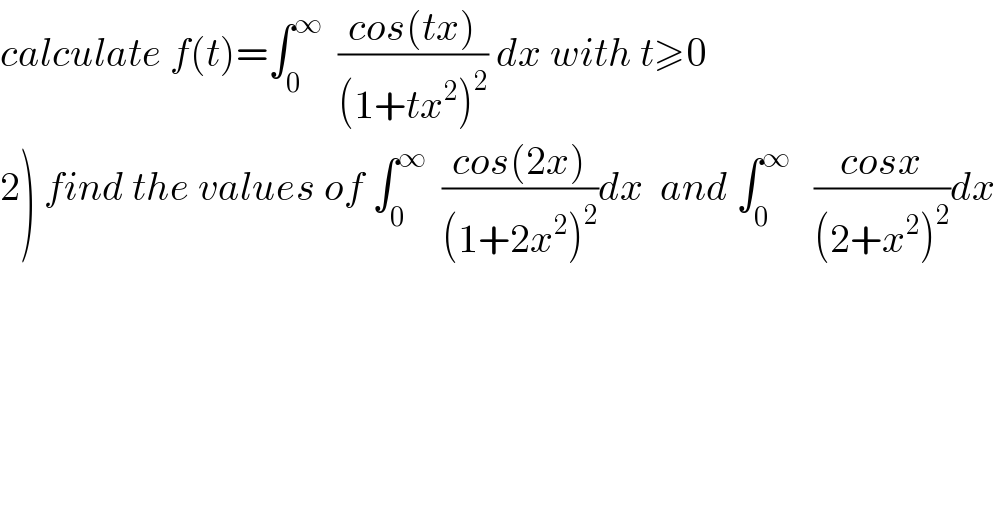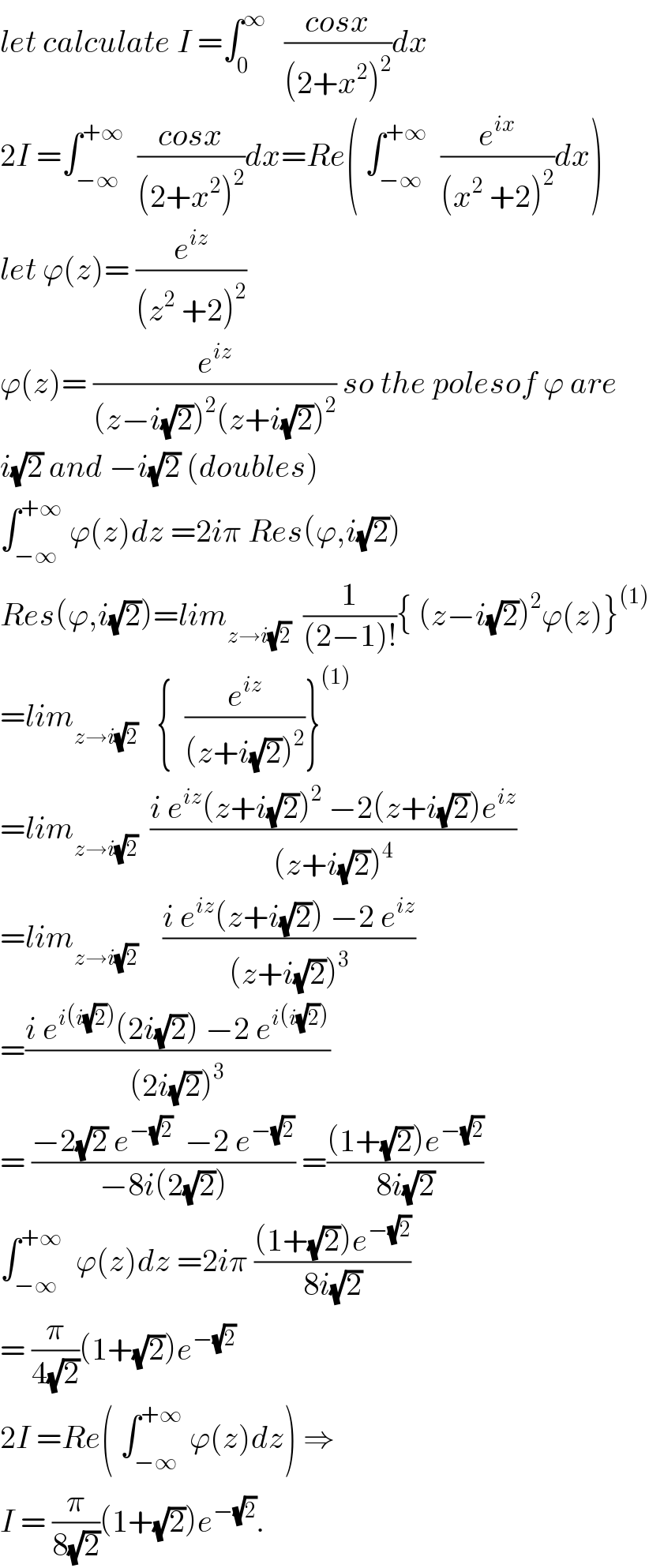
Question and Answers Forum
Question Number 38470 by maxmathsup by imad last updated on 25/Jun/18

Commented by math khazana by abdo last updated on 26/Jun/18

Commented by math khazana by abdo last updated on 27/Jun/18

Commented by math khazana by abdo last updated on 27/Jun/18

Commented by abdo.msup.com last updated on 27/Jun/18

